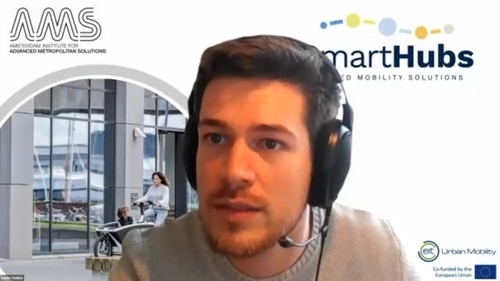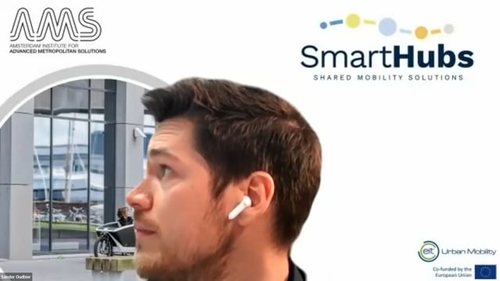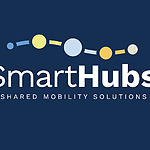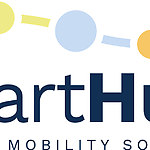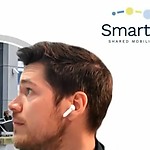Webinarseries by Sander Oudbier
SmartHubs webinar I: How to build the right ecosystem to make smart mobility hubs work
SmartHubs webinar II: Decision support systems for locating smart mobility hubs
SmartHubs webinar III: How to make smart mobility hubs work for everyone
SmartHubs webinar IV: Final results
More bout the project
To implement shared mobility hubs in more effective ways, cities need planning or piloting tools based on real-life data. In collaboration with EIT Urban Mobility, AMS Institute brought together a diverse consortium of partners from six European cities. Together, they set up SmartHubs in Amsterdam, Helmond, Eindhoven, Warsaw, Lisbon, and Barcelona to develop and validate effective and economically viable mobility hub solutions. The project aims to accelerate the successful implementation of the hubs, maximizing citizens’ accessibility and reducing transport invasiveness.
The information will be translated into a decision-support planning tool for cities to help them decide on the type, location, and offered mobility services of the smart mobility hubs at the street, district and city levels.
In Amsterdam, the research focuses on testing different types of shared mobility concepts to learn if and how it can be an alternative for residents to own a private car. The idea is to reduce the parking pressure in the city, free up public space and work towards a more sustainable traffic system in the face of a growing city.

